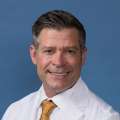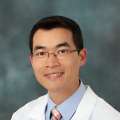Chances are you already know the basics for a healthy new year: Get enough sleep, exercise regularly, eat a balanced diet, keep your stress in check.
But there’s more to well-being than that – plus, even those basics can be hard to practice consistently.
So, as a new year dawns, we’ve rounded up some of the most practical and not-always-obvious advice from UCLA Health experts on how to have a healthy 2025.
David B. Reuben, MD, geriatrician
“Most of what people can do to have a healthy 2025 is not much different than what they could do to have a healthy 2024: exercise; don’t smoke; drink alcohol in moderation, if at all; stay engaged; and keep your mind stimulated.
“Be decent in every interaction and seek optimism every day. You may not find something to rejoice about but you may find something meaningful that may help others and yourself.”
Elizabeth Ko, MD, medical director of the UCLA Health Integrative Medicine Collaborative
“Check in with your internal energy just like you approach your phone battery: How charged are you? Do you start the day at 100%? What depletes you and what energizes you? Lean into the energizing practices and minimize the depleting ones. Tuning into how you moderate your energy permits you to make better choices about how you move through your day.
“Take pauses and slow down. Life tends to feel loud and fast. Give yourself permission to dial down the volume and speed. Moments of rest allow us to replenish our stores. Focus on the quality of your relationships. Deep, strong, nourishing relationships lead to health and happiness.”
Dana Ellis Hunnes, PhD, RD, dietitian

“Eat a whole-food, plant-based diet as much as possible. The more whole, plant-based foods a person can eat, the healthier they are likely to be because of the high fiber content, antioxidants, anti-inflammatory components and compounds in the foods, along with lower calorie intake and increased satiety.
“And spend more time with people you care about. There is a lot of data to suggest that when we are alone, our well-being goes down. So, try to spend time with people you love and enjoy spending time with.”
Valentina Ogaryan, PhD, clinical director of the Simms/Mann UCLA Center for Integrative Oncology
“To me, healthy refers to body, spirit and mind. For the body, it’s best to eat whole foods and incorporate some type of physical activity on a routine basis. It’s also about giving yourself permission to indulge, in moderation, foods that bring you joy.
“With the mind, it’s making sure to increase awareness of helpful versus unhelpful thoughts, to have access to social support and to give the mind some rest by unplugging from social media and becoming intentional about focusing on present-moment interactions.
“With the spirit and heart, it is finding and connecting to people, activities, hobbies, interests that nourish the soul – anything that brings connection and can foster meaning. It can be spending time with loved ones; connection through music, literature and art; prayer, meditation and connecting to spirituality; or community-based activities.”
Marissa Vasquez, MD, lead team physician for the LA Dodgers
“To have a healthy 2025, individuals should focus on managing stress through mindfulness practices, quality sleep, and strong social connections which can significantly enhance mental health and resilience. This is in addition to maintaining a healthy diet and regular exercise, of course.
“When it comes to sports and athletics, focus on injury prevention, mix up workouts with cross-training, and support the body with proper nutrition and hydration.”
Diana Winston, director of UCLA Mindful
“Make time for rest. This means unplugging from time to time and just being rather than constantly doing.
“Practice gratitude. Even brief moments of recalling things you are grateful for can shift your day from resentment and overwhelm to a sense of peace and appreciation. And savor the joyful moments. In addition to gratitude, there are many moments in the day when we experience joy or pleasure. Don't skip over them. Take a moment to really savor the experience, even for a few seconds. We need to build up our joy resources.
“When you’re stressed out, remember STOP: Stop; Take a breath or two; Observe how you’re feeling inside; and Proceed with a bit more awareness and calm.
“Be kind to yourself. We are often so self-judgmental. You are doing the best you can. Try to remember that.”
Jesse Mills, MD, director of the Men’s Clinic at UCLA Health
“Why wait for 2025? Put down your iPad, stand up and move. Whatever you did yesterday — if it was walking a block, walk two today, four tomorrow; if it was a mile, walk two today, three tomorrow and so on. Humans are great at building endurance — it’s in our DNA — be true to your genes and move!
“Don’t add sugar to anything this year. Your body developed a taste for sugar, so you can unlearn that. If you add sweetener to your coffee, add half as much and try to cut it out entirely in two weeks. In the same vein, avoid any food you can’t grow or hunt. The more processing the food you eat goes through, the less well your body does. Processed foods tend to add sugar, fat and salt to make the taste better, but it messes up your brain chemistry to see unnatural combinations of fat and sugar.
“Be purposeful. Outside of your job, find something to do that matters: volunteer, learn a new language, put down your news and social media feeds and pick up an instrument and learn to play.
“Connect. Loneliness is an epidemic made worse by the COVID-19 pandemic. Combine your purpose-driven activity with a social group and put yourself out there.”
Lawrence Taw, MD, director of the UCLA Center for East-West Medicine, Torrance
“Give yourself a foot massage. It’s a simple, easy thing anyone can do – very low cost, low investment and high yield. Our feet take a pounding every day, but most of us don’t take care of our feet. There is a whole body of knowledge about reflexology, which is really acupressure points, and you stimulate a lot of these points when you massage your feet. Get a simple golf ball or a roller, and just roll each foot over it. It can be relaxing, especially if you combine it with closing your eyes and deep breathing.
“Because many of us have too much energy in the head – thinking too much or stressed out - we cannot get our mind to relax and often we do not sleep well. We need something to ground this excess energy, which is easily done when you massage your feet.”
“I usually tell patients to massage their feet daily, but the best time to do it is at night before you go to bed.”










